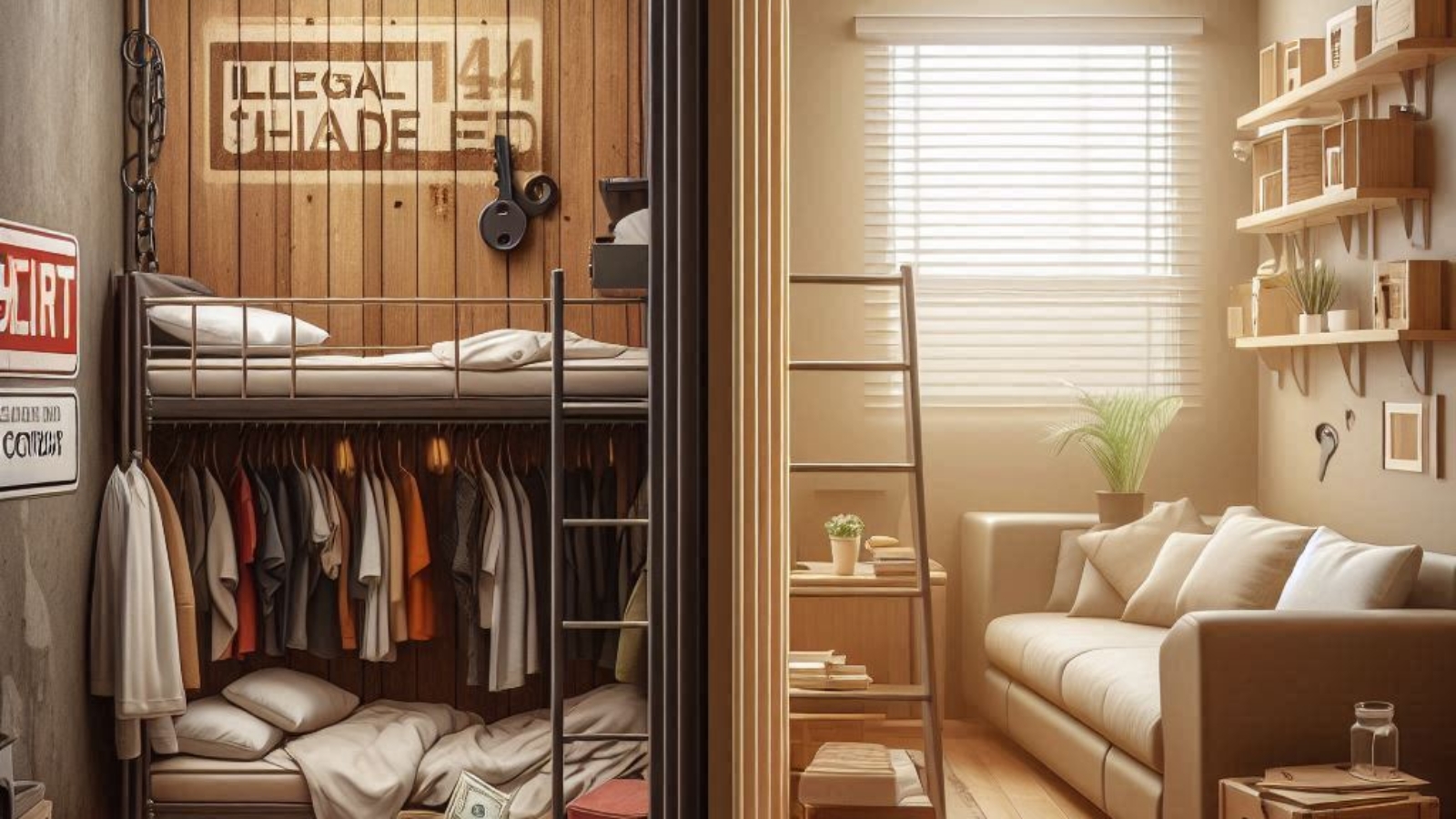🚨 What’s Going On?
If you live in the UAE, you’ve probably heard the buzz:
“Authorities are removing illegal partitioned rooms from buildings.”
And it’s not just a rumor — it’s real.
Cities like Dubai, Sharjah, and Ajman are now inspecting flats, sealing units, and issuing heavy fines to both landlords and tenants involved in illegal room sharing or wooden partitions.
But why now, and what does this mean for regular people trying to survive in a high-rent market?
Let’s break it down.
🔎 Why Is the UAE Cracking Down?
This sudden wave of inspections and fines isn’t random. Authorities are focusing on:
✅ 1. Safety First
Partitioned flats often break fire codes. They block exits, reduce air flow, and hide poor wiring—making them dangerous in emergencies.
✅ 2. Overcrowding Problems
Overloaded flats lead to water shortages, electrical issues, and even neighborhood complaints due to noise and hygiene concerns.
✅ 3. Illegal Modifications
Most partitions are added without permission, which violates municipal laws and building regulations.
✅ 4. City Planning Goals
The UAE is growing fast. Overcrowded and illegally modified buildings don’t fit into the country’s vision for a modern, safe, and well-managed living environment.
💼 How It Affects Low-Income Workers
This crackdown is especially painful for low-salary workers who depend on shared spaces just to survive.
💔 The Reality:
- Partitioned rooms cost AED 500–900/month, while even a basic studio can cost AED 3,000 or more.
- Most of these workers send money back home to support their families.
- Losing access to affordable rooms means higher rent, less savings, or even having to leave the country.
For many, partitioned rooms weren’t a luxury — they were a lifeline.
🏢 How It Affects Buildings and Rent Prices
This crackdown is also reshaping the real estate market:
📉 1. Landlords Lose Extra Income
Landlords who previously earned more from shared flats now face losses — or even fines up to AED 100,000.
🏘️ 2. Falling Demand in Some Buildings
Old or partition-heavy buildings are seeing a drop in demand, especially if they’re under inspection watch.
📈 3. Rising Rent for Legal Flats
With fewer shared options, people are crowding into legal accommodations. This can push rent prices up, especially in densely populated or affordable areas.
👮 What Actions Are Authorities Taking?
The UAE government isn’t taking this lightly.
✅ What They’re Doing:
- Issuing spot inspections in residential areas
- Giving fines to landlords and tenants (ranging from AED 10,000 to AED 100,000)
- Sealing flats with illegal partitions
- Disconnecting utilities in extreme cases
- Encouraging the public to report illegal housing using apps and hotlines
In Sharjah alone, hundreds of cases were recorded in just a few weeks. And other emirates are following fast.
📉 The Hidden Struggle: What’s Next?
This crackdown might clean up safety issues, but it also creates new problems:
- Where will low-income workers go now?
- Will companies be forced to pay more for staff housing?
- Can landlords recover from sudden income loss?
Unless new legal, affordable shared housing is introduced, the pressure on the housing system will continue to grow.
🗣 Final Thoughts
This isn’t just a real estate issue.
It’s a story of how housing, income, and survival collide.
The crackdown may improve safety…
But for many people, it also adds fear, stress, and uncertainty.
As the UAE moves forward with its vision of modern living, let’s hope it also finds balanced, compassionate solutions—ones that protect the law without pushing people out of their homes.
💬 Have you been affected by this crackdown?
Do you live in a shared flat, or own a property being inspected?
Share your story below — someone else may need to hear it.

 Cart is empty
Cart is empty 
Leave A Comment